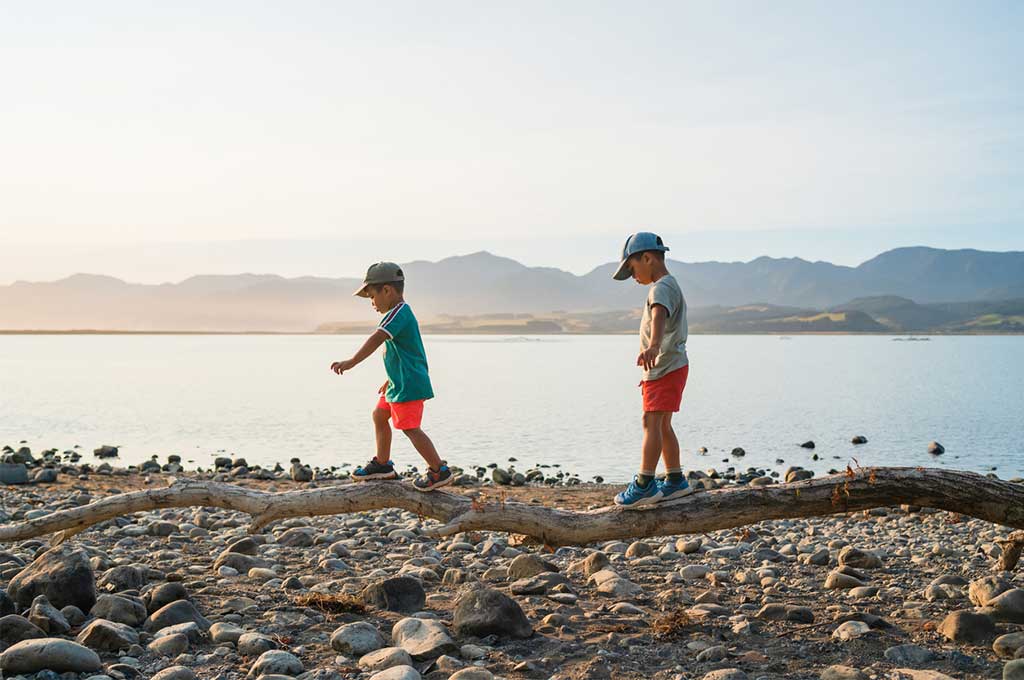
IESE Insight
Kids understand: cooperating for the common good is sustainable, even among competitors
If children across cultures can cooperate on resources, how might that help us fight global problems like climate change?
Clear objectives can encourage children to work toward a prosocial goal, and they are likely to continue to aim for the common good even when they receive competitive feedback, new research shows.
Researchers in the U.K., Germany and Spain devised a game that would see groups of children compete to use and save water resources, then observed what happened when they were given feedback on their own progress only, or on the outcomes of all players.
The game was played in multiple rounds among groups of 6-10 year olds in Berlin, Germany, and Pune, India, who competed to use and save water resources. Each child had a bottle of water and could contribute some or all of it to help a thirsty toy animal. If the group contributed a certain amount, the animal could drink, and the whole group would receive benefits. But, to add an element of self-interest, each child also received points (and ultimately gifts such as stickers) for how much water they had remaining in their own bottle at the end of it.
This is known as a “threshold dilemma” where a certain result must be reached to win a round (or, in this case, the animal would die of thirst). Reaching this threshold benefits the group, but individual goals may conflict with group goals, and therefore with generous impulses. A child who contributes a large portion of their water could risk suffering lower scores compared with peers.
In the real world, many pressing problems are considered threshold dilemmas — from past efforts such as the fight to eradicate smallpox, to the present day’s most urgent concern: the climate crisis.
Keeping temperature increases within certain limits (or thresholds) will be an all-hands-on-deck task for humanity. Identifying the factors that can spur cooperation, or hinder it, has arguably never been so important.
Will humans choose to collaborate even at personal cost to themselves? The answer, at least when it comes to children, seems to be yes.
Working toward an acceptable threshold
The study was conducted by IESE Professor Sebastian Hafenbrädl, with Drs. Patricia Kanngiesser and Jan K. Woike, both of the University of Plymouth, and Dr. Jahnavi Sunderarajan of the Freie Universität Berlin.
The children played eight rounds of the game, and at least two children from each group needed to contribute water to reach the “threshold” to win.
The researchers assigned the groups into one of two categories: those who received feedback on their own results throughout the various rounds, and those who received feedback on everyone’s progress. Thus, some children who gave generously of their own water might observe that some peers gave less and conserved more for themselves.
The researchers anticipated a drop in participation levels when children were aware of others’ results, and this did indeed materialize. However, a majority of children in both groups continued to cooperate enough to meet the threshold in each round, suggesting that the allure of reaching a common goal was stronger than the individual draw to stint on water.
Why Germany and India?
“One of the nice things about this study,” Hafenbrädl says, “is that it shows the results remaining more or less constant in different cultural settings. The Indian education system is highly competitive, and getting good results can have a significant effect on future opportunities, leading the researchers to believe that Indian children might be more susceptible to feedback that they were ‘falling behind.’”
Nonetheless, 75% of German teams and 65% of Indian teams had met the threshold even in the final round. What might this mean for society more generally?
“It shows that how a problem is framed makes a difference,” Hafenbrädl says, “and that with meaningful targets, the right feedback and rich communication, even children who just developed a sense of competition could sustain cooperation. We also recorded what the children had to say while playing and we observed that when they could see everyone’s results they talked about that, but they were also flexible and made efforts to coordinate when it was needed to meet goals.”
About the research
The experiment involved 240 children aged 6-10: 117 or 39 groups in Berlin and 123 children or 41 groups in Pune. Half the groups were assigned to individual feedback, and half to relative feedback (comparing themselves with others). A threshold of water given was required to pass the round and each child also earned points (and a prize of stickers) for how much water they personally kept.
READ ALSO: All about cooperation, collaboration and partnerships

